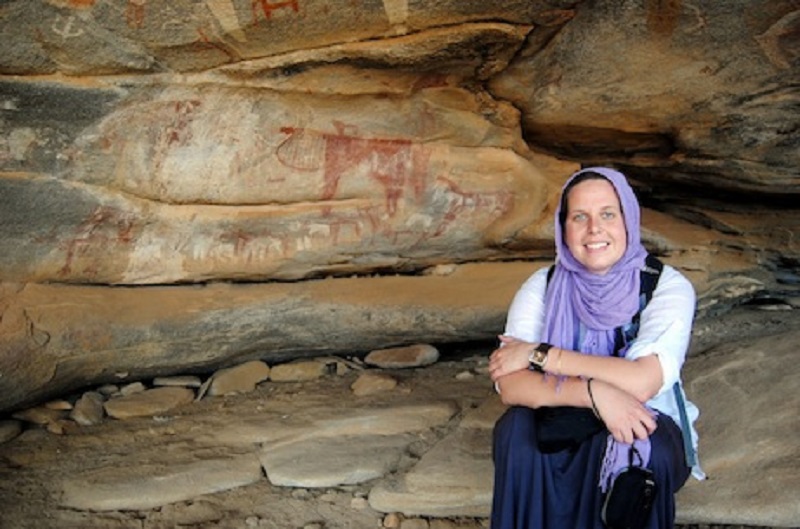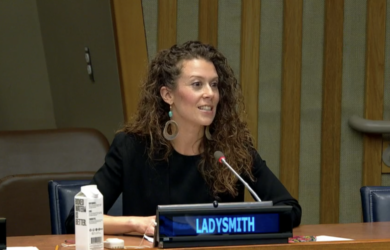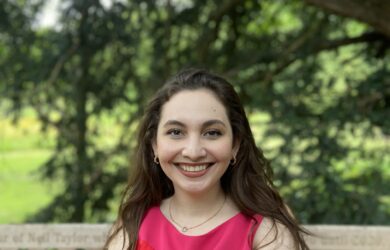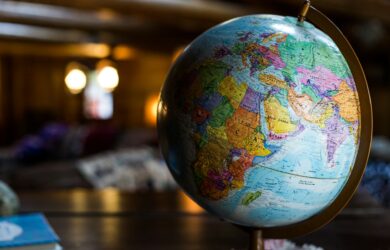
Christina Woolner will focus on how to include local voices in international peacebuilding efforts in Somalia.
International peacebuilding efforts have tended to overlook indigenous knowledge and understanding about conflict resolution, says Christina Woolner.
She hopes her MPhil in Social Anthropology, where she will focus on Somalia, will go some way to addressing issues that have long concerned her and which have been influenced by years of working in different countries, and teaching peace studies, most recently in Somaliland.
She says: “International peacebuilding efforts have tended to be top down and to overlook local resources. We need to better understand the local resources in any given setting. Peace studies texts talk about cultural knowledge as a tool, but I believe culture is much deeper than that. I want to do something that takes seriously how culture shapes our understanding of conflict and peace, and how different forms of knowledge may contribute to peacebuilding efforts.”
Childhood
Christina has always had a very international outlook on life and an interest in social justice. Born in Guelph in southern Ontario, her parents are Mennonite Christians, a pacifist denomination which places a big emphasis on social justice. Her parents spent the first three years of their married life working in northeastern Brazil for Mennonite Central Committee (MCC), a relief, development and peacebuilding organisation. They currently serve with MCC in Ethiopia.
For most of her childhood Christina’s family home played host to a series of international guests, including refugees, students and international service workers. Her mother also coordinated an international exchange programme for MCC. “I only realised that this kind of childhood was not typical when I was in my mid 20s,” she says. “I remember one woman from Thailand who I took into my class when I was five or six for show and tell. She taught the class to do origami,” she says.
The biggest impact such an international childhood had on Christina, however, was that she felt comfortable with people from different cultures and backgrounds. It also made her very aware and interested in refugee issues and throughout her university years she worked closely with organisations that sponsored refugees, including refugees from Somalia.
Christina went to a Mennonite high school. There were often external speakers visiting who came from abroad and there were exchange programmes with France, Germany and China. When she was 18, she went to China and stayed with a host family in Sichuan province, studying Mandarin, cooking and Tai Chi. The trip inspired her to take a year of Mandarin when she started university. In fact, languages have always been a big interest for her. “Growing up in a house where people were speaking lots of different languages, I was always fascinated by languages and what they can teach you about people,” she says. “I wanted to understand things the way people in other countries understood them.”
At Wilfrid Laurier University, Christina studied Global Studies and Religion and Culture. In her third year, having swapped Mandarin for Russian, she went to Russia and did research on how religious institutions could strengthen civil society in the country. For her final year she did an ethnographic study of a local inter-religious dialogue group, which included representatives from a variety of Christian denominations, Jews, Muslims, Hindus, Bahai and Sikhs. “I was interested in the potential for this group to serve as a peacebuilding platform in the community. It was the first ethnographic study I did and it piqued my interest in the ways that research could promote positive social change,” she states.
After finishing her undergraduate degree, Christina took a year off to go back to Russia where she studied Russian, taught English and volunteered at human rights and environment groups in eastern Russia.
Peace studies
The year after she started a two-year masters at Notre Dame in international peace studies. She chose the program because it placed a strong emphasis on educating scholar-practitioners, and looking at what religious organisations bring to the table. “Peace studies is often dominated by political scientists and I thought a different perspective was needed,” she says. The masters involved a six-month work placement, which she did at the Institute for Justice and Reconciliation in Cape Town, South Africa. She assisted with a digital storytelling project on land restitution claims, as well as a film project with young people from different parts of Africa, many of whom had experienced xenophohic violence, getting them to tell their life stories. She also worked on a community-led oral history project, which raised interesting questions about different communities’ versions of history. “It was interesting how history could remain so political so many years later,” she says. “It showed the need for different versions of history to be heard and how personal stories affect social, political and economic processes.”
She returned to Notre Dame and did a research project on the role of oral poetry in Somali peacebuilding processes. “I had always been intrigued by how Somali people reacted to poetry, how the poetic medium and the stories embedded in poetry reveal how people understand themselves, how they understand conflict and how that affects peacebuilding,” she says.
After finishing her masters, Christina returned home. She was keen to do a PhD, but wanted to get some practical experience too. She worked for Project Ploughshares in Waterloo doing research on the arms trade and armed conflict and also worked on a project looking at gun crime in the Caribbean. “All these experiences came from the same place – an interest in social change and peace and the intersection between scholarship and action,” she says.
After a year in the policy world, and government funding cuts that compromised her job, Christina transitioned to teaching peace and conflict studies, using personal stories to bring the issues to life for her students. From there she got the opportunity to teach at the University of Hargeisa in Somaliland at the Institute for Peace and Conflict Studies where, due to the security situation, she was escorted everywhere by a soldier with an AK47. She took a critical approach to the subject matter she was teaching. “The students had a hard time relating to a lot of the writing in the field because it had all been written by white guys,” she says. “Where were the Somali scholars?”
She felt social anthropology was a way of recognising the knowledge that exists in local communities and decided to apply to do further studies.
Cambridge
She applied to the University of Cambridge and had her interview for the Gates Cambridge Scholarship via Skype from Somaliland.
For her MPhil in social anthropology, her plan is to look at the relationship between indigenous conflict resolution practices and international peacebuilding efforts with particular reference to Somalia.
She applied to Cambridge in part because of the Gates Cambridge Scholarship. “I liked the idea of a community of scholars from different disciplines and countries all committed to using their scholarship to promote positive change,” she says.
After her MPhil she plans to continue to doctoral studies and an eventual career as a peace studies educator and ‘engaged’ social anthropologist focused on war and peace.












